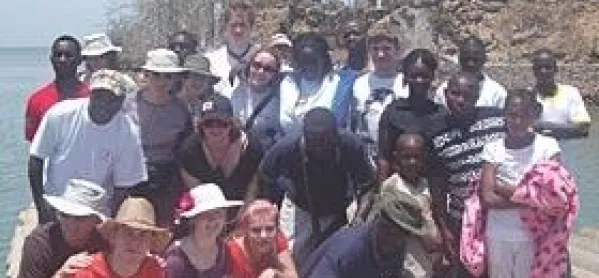‘It’s the curriculum in action’
Schools are being urged to encourage pupils to enrol on the Duke of Edinburgh’s Award
Share
‘It’s the curriculum in action’
https://www.tes.com/magazine/archive/its-curriculum-action

The duke of Edinburgh’s Award is stepping up its efforts to persuade more schools and young people to become involved, believing it has a “synergy” with the new curriculum.
The move follows an HMIE review of the award’s activities in Scotland, to be published shortly, which found it had a “profound effect” on enabling young people to learn and achieve in an informal environment.
A pilot project which trialled the award in six schools in Highland, East Lothian and South Ayrshire aimed to enrol all S3s in award programmes at bronze level if they wished. Findings suggest that overcoming challenges set by activities such as volunteering and expeditions have made them more confident. Young people also reported that taking part had changed their attitudes to school and made them think more positively about what they wanted to do after leaving. A teacher said: “The DoE is A Curriculum for Excellence in action.”
A seminar in Edinburgh last week heard pupils at Carrick Academy in South Ayrshire, Shannyn Henderson and Hannah Cathcart, tell education officials and others that taking part had boosted their confidence, helped them cope better in school and prepared them to deal with life after school. “It allowed me to do things I wouldn’t have thought I’d be able to do,” Hannah said.
Now Scotland’s leading exponent of confidence-building is urging all schools to follow that lead. Carol Craig, chief executive of the Centre for Confidence and Well-being, told the seminar: “If we are going to make pupils more confident, as A Curriculum for Excellence asks us to do, we could do no better than support the Duke of Edinburgh’s Award. I’m a huge fan.”
She suggested it could build young people’s resilience and regard for others, mitigating the worst excesses of the “generation me” syndrome and guarding against misplaced confidence. There was a danger that the new curriculum could be a vehicle for “the high school musical version of confidence - the self-belief and dreams aspects, not the hard work and achievement”.
Dr Craig urged the leaders of the curriculum reform to treat confidence in context. “I’m confident about standing here speaking in public, but not in changing the wheel of my car or going up a mountain on my own.”
She said the award “hits the spot” in challenging the current tendency of signalling to youngsters that they are “the centre of the universe”. It does so by setting goals, challenging pupils, giving people real skills, building a genuine sense of achievement, providing opportunities for direct learning and independence and exposing youngsters to the “critical” importance of physical activities and the outdoors.
Barry Fisher, new director of the award in Scotland, said that, while 25,000 young people took part in its activities in Scotland each year, that was only 3 per cent of the target 14-25 age group. There are DoE groups in 66 per cent of Scottish secondary schools. “We hope A Curriculum for Excellence will help to provide a real impetus to increase the figure significantly,” Mr Fisher said.
The Duke of Edinburgh was in the capital last week to talk to 700 young people who had achieved their gold award, something he has done every year in Scotland since he established the award 52 years ago.
You've reached your limit of free articles this month. Subscribe for £1 per month for three months and get: